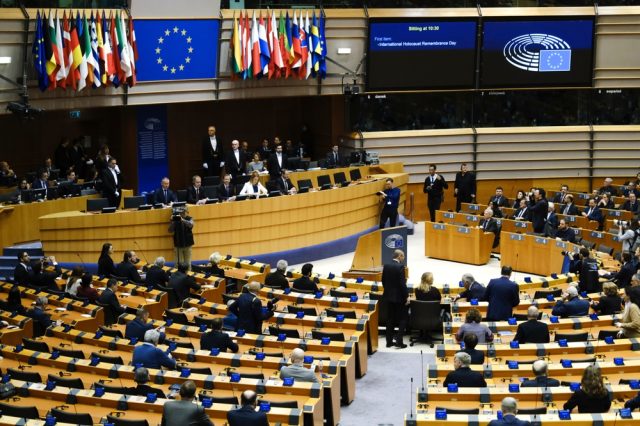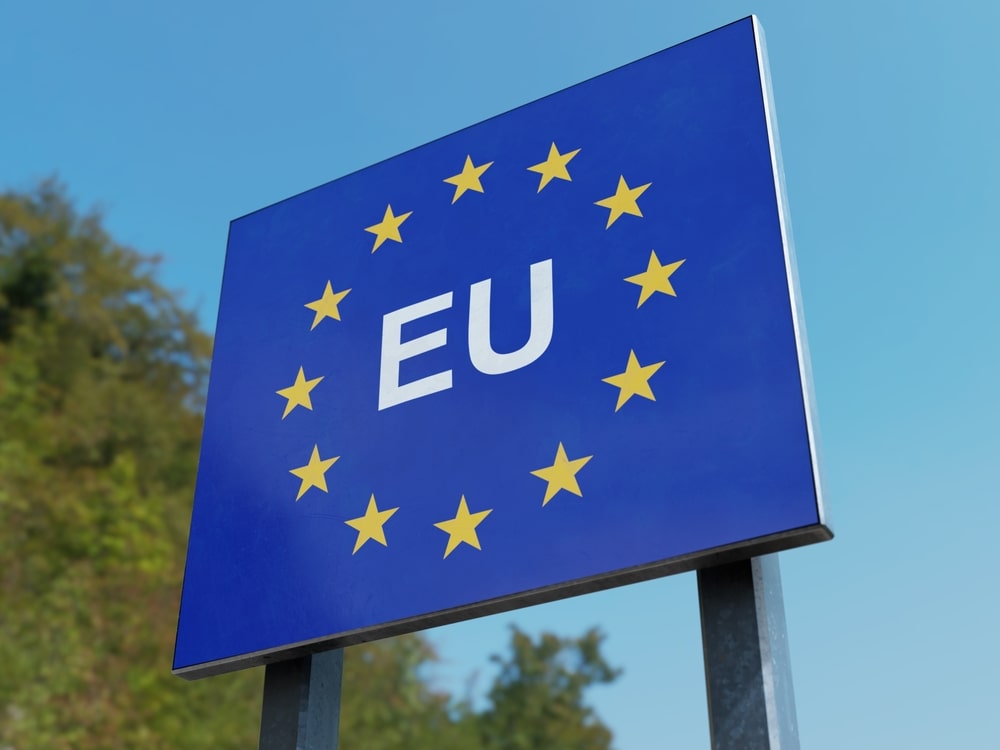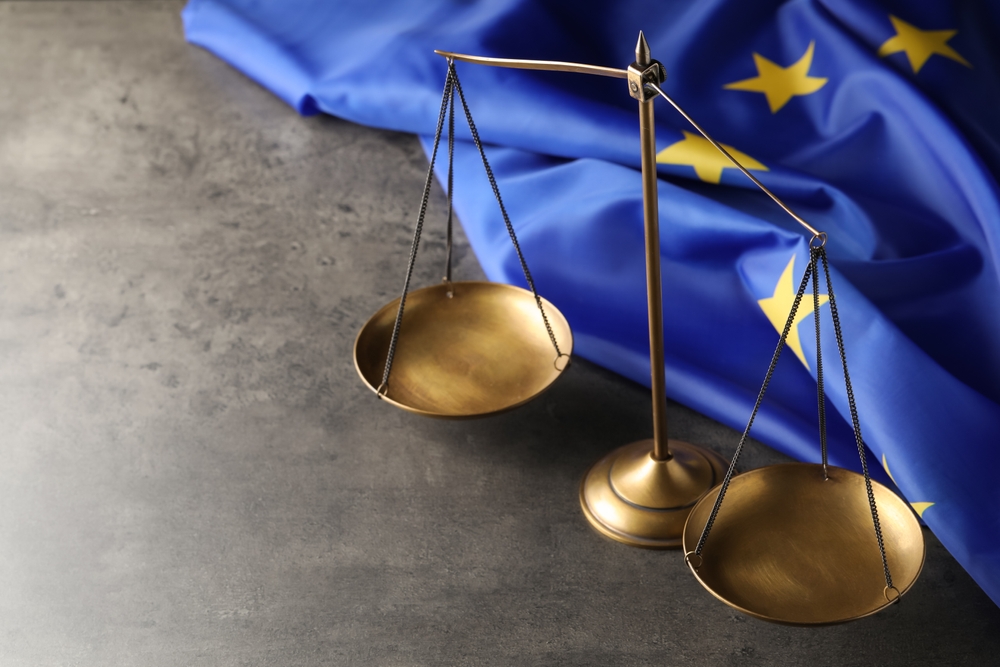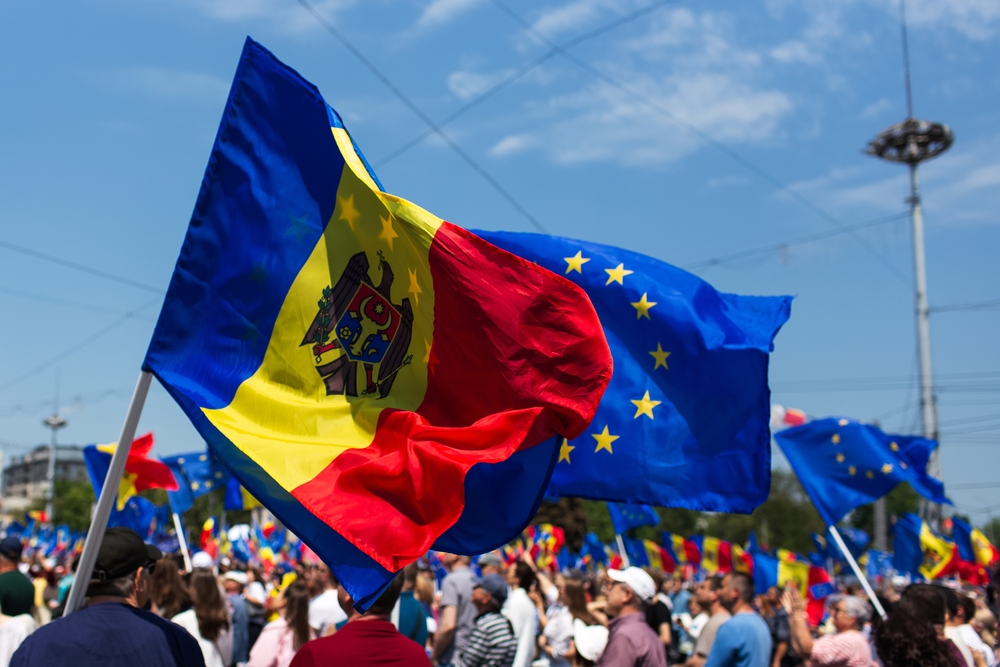
The idea of unity seems to be in a constant state of negotiation in today’s Europe. As the EU strives to maintain its internal balance between divergent economic interests, geopolitical pressures, and the need for cohesion, the fundamental question about its future remains linked to enlargement. In a world where political boundaries are redrawn faster than institutions can comprehend, the EU faces a crucial dilemma. How can it continue to grow without fracturing? How can it include new members, eager to share its values, without compromising the mechanisms that ensure its democratic functioning?
A discreet but potentially historic proposal has begun to circulate among European diplomats in recent months. The idea is that new members of the Union would initially join without full voting rights. Essentially, this would mean gradual integration, in which candidate countries such as Ukraine, Moldova, and Montenegro could enjoy the benefits of belonging to the common market and structural funds but would temporarily “give up” their right to veto in the EU Council. It is a compromise solution at a time when the enlargement process seems to be blocked by the reluctance of some governments, particularly that of Budapest, led by Viktor Orbán, but also by the fear of some Western capitals that a Union that is too large will become ungovernable. This idea is not just an exercise in institutional engineering but reflects a paradigm shift. The EU can no longer view its enlargement as merely a technical issue, but as a security issue. The Russian Federation’s aggression against Ukraine has turned enlargement into a strategic tool, a geopolitical shield designed to protect the continent from instability at its borders. In this context, the proposal for gradual accession could become a middle ground between the idealism of unlimited enlargement and the realism of a Union that still fears its own complexity.
European diplomats who support this idea believe that the process could be triggered without treaty changes, a difficult and politically sensitive operation for some member states. Brussels could therefore move forward with enlargement without entering a new constitutional maze. At the same time, the new model would offer candidate countries a clear perspective, with progressive rights conditional on internal reforms and gradual adaptation to European standards. Unfortunately, behind this idea lies a precarious balance. If the newcomers were only partially integrated, with limited political rights, would this not create a two-speed Union? A Europe of the fully accepted and another of the “almost Europeans”? This is the moral and political dilemma that accompanies every discussion on future enlargement.

In capitals such as Vienna and Stockholm, enlargement is seen as a strategic response to Russian aggression, an investment in continental stability. Voices are more cautious in Paris and The Hague, however. France, marked by a wave of internal Euroscepticism and in the midst of a political crisis, along with the Netherlands, concerned about the budgetary impact, are demanding additional guarantees that enlargement will not dilute the political cohesion of the Union. This balance between idealism and pragmatism has been present in the past, but today it takes on a new urgency. After the United Kingdom’s exit from the EU and after ten years without new members, Europe faces double pressure: to show that it is still an open project, but also to protect itself from its own vulnerabilities. In this context, new members would become a test of the resilience of the European model itself, a model based on solidarity but constrained by harsh economic and political realities.
Montenegro began accession negotiations in 2012 and has provisionally closed only some of the 35 negotiation chapters. Frustration is growing, and Balkan leaders warn that the slowness of the process risks demoralizing societies that have been implementing costly reforms for over a decade. President Jakov Milatović recently stated that “enlargement has become a mirage, a promise postponed indefinitely.” At the same time, in Ukraine and Moldova, European hope is an integral part of national identity, born of a desire to escape Russian influence and anchor the future in a space of democracy and prosperity.
But why is everything moving so slowly? The EU accession process is essentially an institutional endurance race. Candidate countries must meet the so-called Copenhagen Criteria, which include political stability, a functioning market economy, respect for the rule of law, and the ability to adopt the entire acquis communautaire. In practice, this means thousands of pages of regulations that must be transposed into domestic law and a profound reform of institutions. That is why the process takes between 8 and 15 years, and sometimes even longer. The last country to join (Croatia) negotiated for a decade, between 2003 and 2013. At the same time, delicate discussions are held on money, an ever-sensitive topic in Brussels. The EU budget, known as the “Multiannual Financial Framework,” is mainly funded by contributions from member states, calculated on the basis of GDP. The largest net contributor, with approximately €26 billion annually, is Germany, followed by France and Italy, each with around €20-21 billion. At the opposite end of the spectrum, the countries of Central and Eastern Europe are net beneficiaries. Romania, for example, receives approximately €6 billion more than it contributes. Enlargement to the east inevitably means budgetary redistribution, which explains some of the reluctance of Western countries. Based on the financial argument, the idea of accepting new members without full rights makes pragmatic sense. It would allow for gradual integration without immediate pressure on the budget and voting mechanisms. Beyond the financial calculations, enlargement remains a matter of political vision. Accession is not just a reward for reforms, but an act of recognition for belonging to a common space of values.

Over the past two decades, EU enlargement has been a slow but steady process that has redefined the European political and economic map. If we look at the last five countries that joined, a clear trend can be seen. Each round of enlargement was accompanied by a new debate on European identity, the limits of solidarity, and the capacity for integration. Croatia (a member of the Union since 2013) is a telling example. The accession process took eleven years, during which time the country had to close 35 chapters of negotiations and implement radical reforms in the justice system, administration, and the fight against corruption. It was a symbolic accession, the first after the period of deep economic crisis in Europe, and, at the same time, a sign that the Western Balkans had not been forgotten. Croatia’s success was not followed by a wave of new members, but by a period of stagnation, during which skepticism about enlargement increased. Before Croatia, Romania and Bulgaria were the last countries to join in 2007. For both, the road to Brussels was marked by intense reform efforts, but also by prolonged monitoring. The Cooperation and Verification Mechanism, established by the European Commission, was a signal that full trust is not automatic. Romania, for example, was monitored for over ten years for progress in the fight against corruption and in the field of justice. Bulgaria, facing the same problems, remained under the constant scrutiny of European institutions. Both countries have become examples of how accession can stimulate major internal reforms and transform entire societies.
The EU underwent its largest expansion in history in 2004, when ten countries (Slovenia, Poland, Hungary, the Czech Republic, Slovakia, the Baltic states, Malta, and Cyprus) became members. Since then, the Union has doubled its population and redefined its internal economic balance. Slovenia was among the most prepared, thanks to its stable economy and cultural proximity to Central Europe. Lithuania, Latvia, and Estonia brought a new Nordic dynamism, focused on digitalization and security, becoming benchmarks for rapid adaptation to the European model. Looking at these examples, it is clear that enlargement is not a uniform process. The average time from applying for membership to obtaining it is 10–12 years, but it depends on the geopolitical context and the political will of the existing member states. Croatia needed a decade, Romania and Bulgaria almost eight years, and the Baltic states succeeded in about five years, benefiting from a favorable situation in the early 2000s, when Europe was amid post-Cold War reconstruction.
Behind these rates lies a complex reality that shows that enlargement is as much a political process as it is a technical one. The Copenhagen criteria provide a clear framework, but the final decision depends on the political consensus of the 27 states. The entire process can be blocked by a single veto. This was demonstrated in the case of North Macedonia, whose accession was delayed for years due to bilateral disputes. A new wave of enlargement is, in essence, a negotiation between the past and the future. Europe is constantly asking itself who it is and who can become part of it.
Turkey, the longest and most controversial integration story in EU history
Turkey officially applied for membership in 1987, but its relationship with Brussels has much older roots, in the association agreement signed in 1963. In the 1990s, Ankara was seen as a strategic bridge between Europe and the Middle East. Beyond its geostrategic importance, the negotiations were marked by constant suspicion as to whether a predominantly Muslim country (with a population of over 80 million) should be integrated into a political project born of Christian-democratic values. Formal negotiations only began in 2005, but the process was blocked. Of the 35 chapters, only 16 were opened, and only one was provisionally closed. Disagreements over the rule of law, freedom of the press, and the human rights situation turned accession into a symbol of the gap between rhetoric and reality. After the attempted coup and the repression that followed in 2016, Brussels effectively froze the process. The relationship between the EU and Turkey has never been completely severed. Beyond the political deadlock, economic cooperation and the 2016 migration agreement have maintained a pragmatic dialogue. Turkey is the EU’s fifth largest trading partner, with its economy deeply interconnected with the European market. Therefore, although full membership seems distant, the idea of an “enhanced association,” an economic and strategic partnership without formal integration, remains a scenario discussed in European circles. The example of Turkey teaches us that enlargement is not just a matter of geography, but also of political and cultural compatibility. The accession process inevitably becomes suspended if a candidate’s democratic values deviate from European standards. Turkey plays a dual role, that of a strategic ally of NATO and an economic partner of the Union. This position ensures its geopolitical relevance. In a multipolar world, Turkey remains an indispensable player for European security, even if it is not formally part of the Union.
Moldova and Ukraine could join between 2030 and 2035
Russia’s attack on Ukraine in 2022 completely changed the dynamics of enlargement. In contrast to the slowness and deadlock of the Turkish negotiations, the aspirations of the Republic of Moldova and Ukraine were accelerated by historical circumstances. What seemed like a distant horizon has become a political emergency. In June 2022, both countries were granted candidate status, and the EC published the timetable, which provides for the start of official negotiations. Moldova, a small country but with an increasingly pronounced European identity, has made rapid progress in reforming its institutions. Reforms in the justice system, the digitization of the administration, and efforts to combat corruption are viewed with optimism in Brussels. Energy vulnerabilities and Moscow’s persistent influence in the Transnistria region complicate the picture.
Ukraine, on the other hand, faces a harsher reality. The war has accelerated the political desire to move closer to Europe but has made it difficult to implement the structural reforms required for accession. Nevertheless, popular support for European integration is huge. Over 85% of Ukrainians believe that the country’s future lies in the EU. This social energy is a rare opportunity to rebuild a European state from the ground up after a devastating conflict. According to forecasts, if the process proceeds without major political obstacles, Moldova and Ukraine could join between 2030 and 2035. However, there are several factors that condition accession. The main condition is the end of the war, followed by internal stability and, above all, the Union’s ability to reform its internal mechanisms to accept new members. To integrate new members without compromising internal stability, the EU must rethink not only its accession procedures, but also its very structure of governance. The essence of the reform currently being discussed in Brussels is a larger but more efficient Union. The European Commission’s proposal to extend qualified majority voting in several areas, including foreign policy, taxation, and security, is an attempt to avoid deadlocks caused by national vetoes. The current model, in which unanimity is required for major decisions, has become a politically exploitable vulnerability. In 2025, the Union’s common budget is estimated at approximately €189 billion in expenditure, to which €64 billion from the NextGenerationEU instrument is added. More than 70% of this budget is financed by contributions based on the gross national income (GNI) of the Member States.
In 2024, Germany contributed approximately €26 billion, France €21 billion, Italy €20 billion, while Romania contributed around €3.3 billion and received European funds of over €9 billion. The positive balance of around €6 billion in Romania’s favor shows how cohesion policy works as a redistribution mechanism, reducing the gaps between the West and the East. The EU budget would have to be significantly recalibrated if Ukraine, a country with over 40 million inhabitants, were to join. The integration of Ukraine alone could require an additional €18 to €20 billion annually in structural funds, according to Commission estimates. Discussions on gradual accession without the right of veto take on an additional technical nuance and concern not only political decision-making issues, but also the financial sustainability of the European project. An enlarged Union must have flexible budgetary mechanisms capable of absorbing differences in development between members without generating resentment between taxpayers and beneficiaries. Beyond the figures, the essential issue remains one of democratic legitimacy. How can the Union remain a democratic project when some members do not have full voting rights? The answer, suggested by European officials such as Anton Hofreiter of the Bundestag, is that this temporary sacrifice of political equality could be a necessary step to avoid complete stagnation. The lessons of the past show that no compromise can be sustainable without a clear vision. Enlargement should not be merely a reaction to crises, but a coherent project of political construction. If in the 1990s enlargement to the East was an act of reconciliation, today it is a form of resistance in the face of geopolitical revisionism. For the Republic of Moldova and Ukraine, the prospect of accession is not just a matter of economic development, but an existential guarantee. In Chișinău, Maia Sandu’s pro-European message has become a symbol of political resilience. Accelerated reforms, cooperation with the European Commission, and financial support from member states have created a sense of irreversibility in the European path. However, Moldova faces structural challenges such as energy dependence on imports, vulnerability to Russian propaganda, and a fragile economy. In Ukraine, the picture is much more complex. The war has turned EU accession into a strategic goal for national survival. Even in wartime, the government in Kiev managed to implement significant reforms in the judiciary, digitize the administration, and intensify the fight against corruption. Behind the optimism lies the question: is the Union ready to absorb a country in reconstruction with a territory that is still disputed?

A phased integration model would be the most likely scenario. Ukraine and Moldova could benefit in the medium term from extended access to the single market and participation in European education, infrastructure, and energy programs, but without voting rights or full access to structural funds. This gradual integration would function as a permanent pre-accession, providing stability and tangible benefits without forcing the Union to suddenly face an institutional revolution. At the same time, enlargement raises a more subtle but essential issue: European identity. What does it mean to be European today? Is it just about belonging to a free trade area with common regulations, or is it about a shared cultural and political vision? The founders of the Union dreamed of a community of nations united by values, not just interests. These values are being tested by political polarization, the rise of populism, and external pressures. EU enlargement is becoming more than a matter of foreign policy; it is a statement of principle. Each new member not only changes the map of Europe but also redefines what the European project itself means. How long will this process take? If we look at the history of enlargements, the average interval between candidate status and actual accession is about 10 years. In the case of Croatia, it was 11; in the case of Romania and Bulgaria, 8; in the case of Turkey, the process has stretched over four decades without result. For Ukraine and Moldova, the reality will depend not only on their own reforms, but also on the speed with which the Union adapts its institutions. Without reform of the voting system and the budget, a new, massive enlargement would be almost impossible.
The European Commission estimates that with the integration of Moldova, Ukraine, the Western Balkans, and possibly Georgia, the Union’s population would exceed 520 million and total GDP would increase by more than 6%, but average GDP per capita would decline slightly, a sign that economic disparities would become more visible. This is not an insurmountable problem, but it does require a new budgetary philosophy, one based on solidarity and efficiency. Europe is at a turning point. Its future will depend on its ability to combine the idealism of enlargement with the realism of internal reforms. A larger Union must be more coherent, and a more open Union must be more demanding. Ultimately, the big challenge is not who joins Europe, but how Europe can remain true to its own promise. In the 1990s, enlargement symbolized the triumph of democracy over communism, and the enlargement of the 2030s could represent the victory of stability over geopolitical chaos. The accession of Moldova and Ukraine would not only be a gesture of solidarity, but also an act of continental security, and Europe would expand not to increase its numbers, but to protect its borders and values. The idea of accession without full rights should not be seen as a concession, but as an intelligent transition phase. In a world of uncertainty, the EU needs flexibility to integrate differences without dissolving them, and the courage to act before history forces it to do so. Enlargement is not just about welcoming new members, but about renewing Europe’s promise that unity, however difficult, remains the most solid response to disunity.



 Subscribe
Subscribe